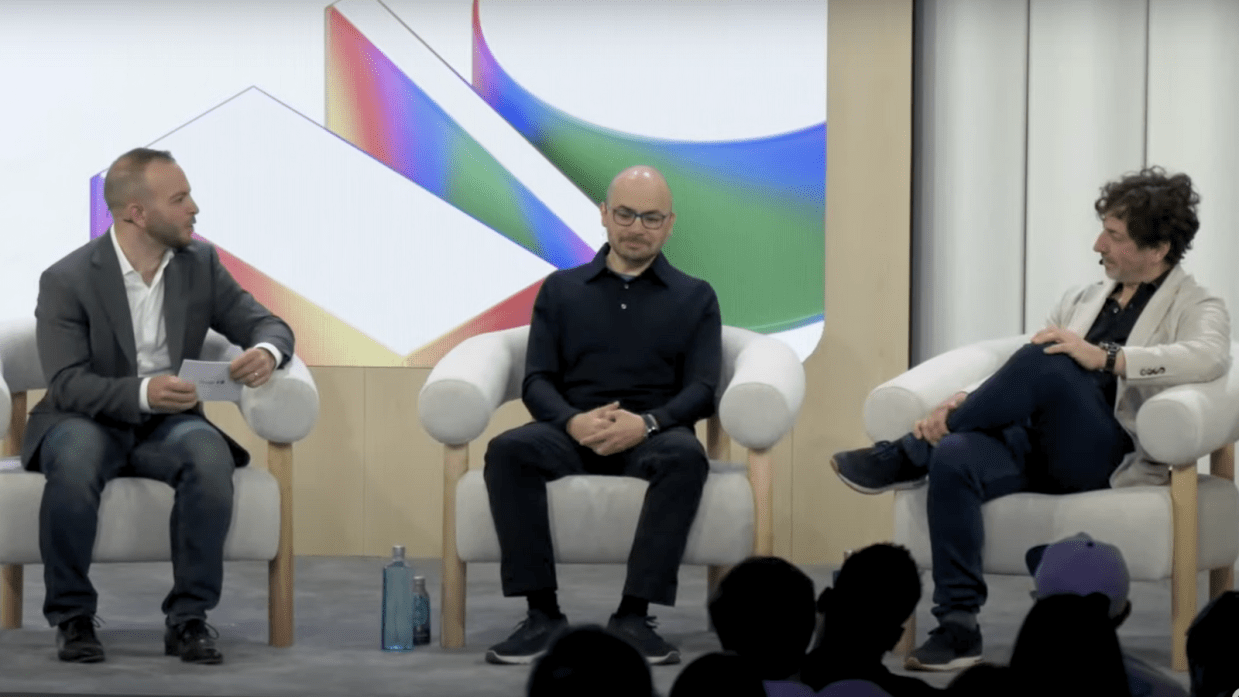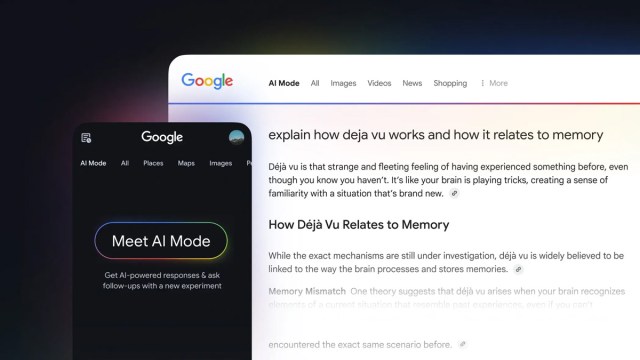We deliver! Get curated industry news straight to your inbox. Subscribe to Adweek newsletters.
Sergey Brin wasn’t expected onstage at Google’s annual developer conference, I/O, in Mountain View on Tuesday.
The legendary Google cofounder and former Alphabet president appeared unannounced alongside Google DeepMind founder and CEO Demis Hassabis in the afternoon, where they were interviewed by Alex Kantrowitz of The Big Technology Podcast.
The two opined on the future of AI in a series of bold predictions and philosophical musings.
Here are five of the Google leaders’ most insightful takes.
AGI will be here by around 2030
Kantrowitz asked the Google heavyweights whether we can soon expect to see the emergence of artificial general intelligence, or AGI—the definition of which is amorphous but generally indicates when AI systems can match or surpass humans’ cognitive capabilities across many functions.
Both agreed that 2030 was a good rough estimate for the arrival of AGI, though Hassabis noted it may come a little after 2030.
To reach this benchmark, developers will need to embrace new approaches, while prioritizing growth, Hassabis said.
“You need to scale to the maximum the techniques that you know about and exploit them to the limit,” Hassabis said. “At the same time, you want to spend a bunch of effort on what’s coming next.”
Brin agreed, noting that we’re seeing an influx of improvements in both algorithmic and compute improvements.
Hassabis added: “To get all the way to something like AGI I think may require one or two more new breakthroughs.”
The future may have ‘personal AGIs’
If one organization reaches AGI ahead of the pack—even in a case of what Brin called “a constant leapfrog”—our understanding and applications of AGI may evolve further.
“We can imagine using [systems that have achieved AGI] to shard off many systems that have safe architectures built provably underneath them,” Hassabis said. “And then you could have personal AGIs and all sorts of things happening.”
Robotics will enter a new era of sophistication with AI advancements
As AI systems improve and scale, physical robotics will benefit, Hassabis said.
“We are trying to build AGI, which is a full general intelligence, clearly, that would have to understand…the physical world around you,” Hassabis said. “And two of the massive use cases for that, in my opinion, are a truly useful assistant that can come around with you in your daily life, [and is] not just stuck on your computer or one device…and then the other big thing is [robotics].”
The industry, Hassabis suggested, hasn’t yet reached a point where physical robots can complete all the tasks humans want them to—but with software advancements, we could get there sooner rather than later.
“I’ve always felt that the bottleneck in robotics isn’t so much the hardware, although, obviously there’s many…but it’s actually the software intelligence that I think is always what’s held robotics back,” he said. But with breakthroughs in AI models, he added, “we’re going to have really exciting algorithms to make robotics finally work and sort of realize its potential.”
Expect to see an agent-first web in the future
Brin said it’s too hard to conjecture on the future of the web: “I don’t think we really know what the world looks like in 10 years.”
Hassabis, however, had one tangible prediction to share: AI agents will soon take over the way we navigate digital spaces.
The web will change a lot in the near term, he said. “If you think about an agent-first web…it doesn’t necessarily need to see renders and things like we do as humans using the web. So I think things will be pretty different in a few years.”
We might be living in a simulation
When asked about a recent post he made on X suggesting that we could be living in a simulation, Hassabis said…maybe.
He clarified: “I don’t think this is some kind of game, even though I wrote a lot of games. I do think that ultimately, underlying physics is information theory. So I do think we’re in a computational universe, but it’s not just a straightforward simulation…the fact that these systems are able to model real structures in nature is quite interesting and telling.”
“Maybe at some point I’ll write up a scientific paper about what I think that really means in terms of what’s actually going on here in reality,” he added.
Brin, meanwhile, took the argument in a different direction.
“That argument applies recursively,” the exec chimed in. “If we’re in a simulation, then by the same argument, whatever beings are making the simulation are themselves in a simulation for roughly the same reasons, and so on and so forth.” He added: “You’re going to have to either accept that we’re in an infinite stack of simulations or that there’s got to be some stopping criteria.”









